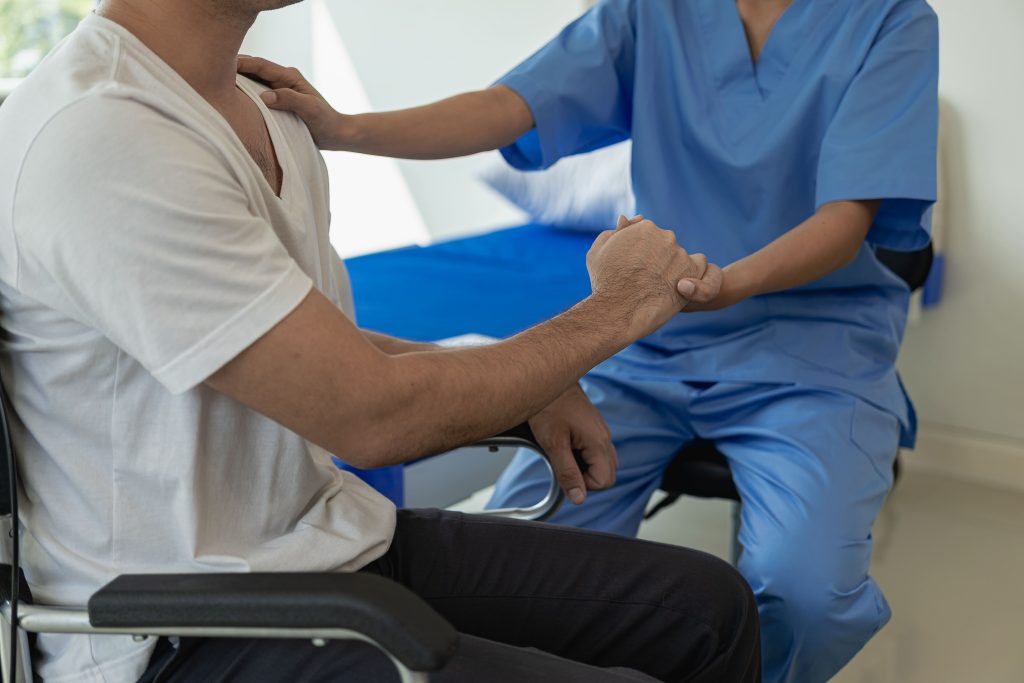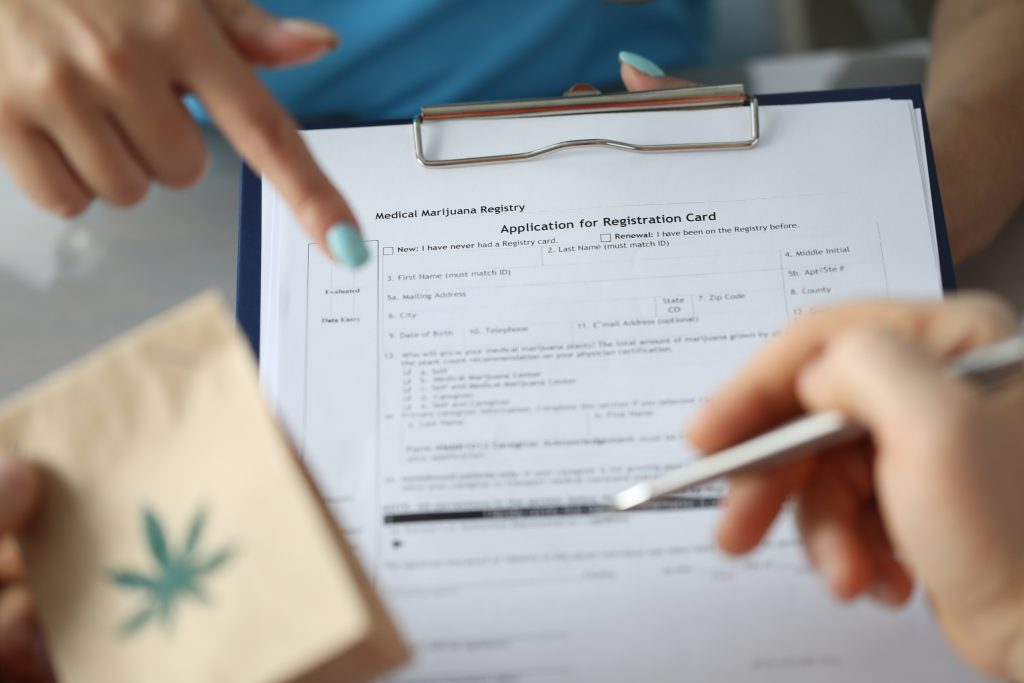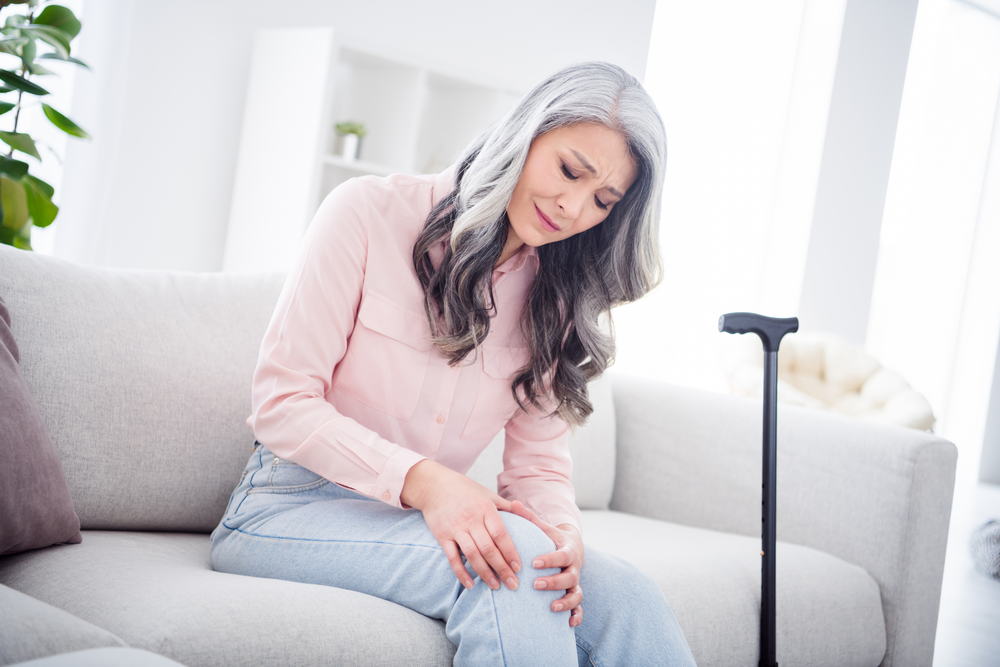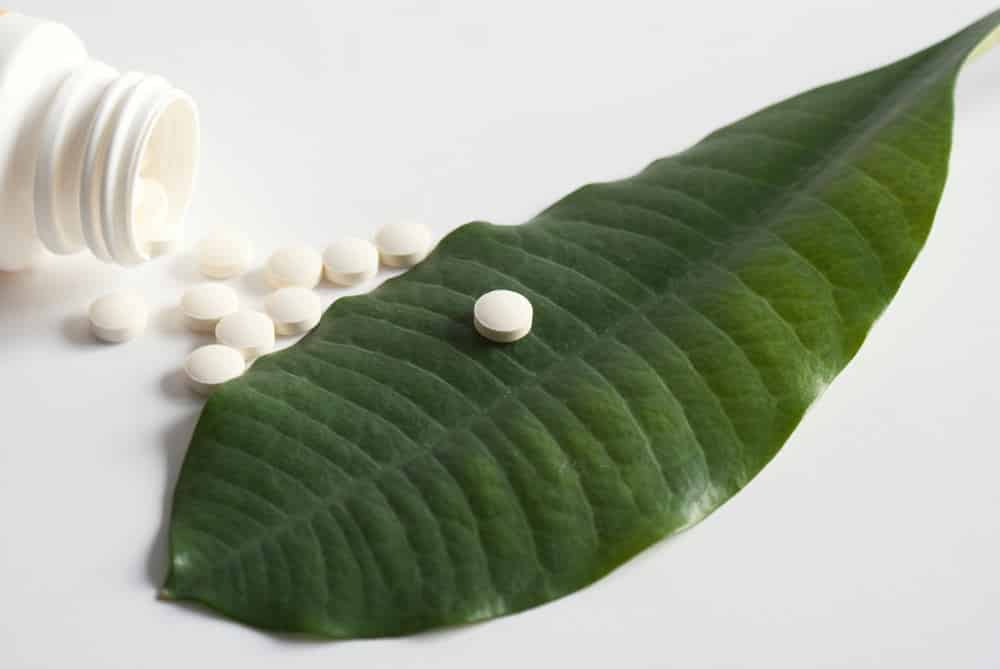
Pain is a topic that can be discussed from an almost limitless number of angles. There are just so many aspects to it that pain is very difficult to put in a box. So it stands to reason that managing pain is similar. There is no one-size-fits-all way to do it for every person. Enter the Utah Med Card.
Historically, the U.S. has been reluctant to embrace the plant-based medicines made available through the Utah Med Card. We will not get into the reasons why. Rather, we have seen a growing acceptance of those medicines in recent years, especially for treating chronic pain. We have made such incredible strides that the KindlyMD team is confident in saying that the Utah Med Card is a legitimate option for managing pain.
Although Utah's Med Card program has been active for several years now, there are still plenty of chronic pain patients who either haven't heard of it or don't know how it works. The good news is that the program is fairly simple. As previously stated, a Med Card gives a patient access to plant-based medicines that are not available otherwise.
These are medicines that aren't available by traditional prescription. They also are not sold down at the chain pharmacy. They are dispensed only through state-licensed pharmacies to patients with active Med Cards.
One of the things we do here at KindlyMD is help eligible patients get their cards. If you have been diagnosed with a qualifying condition, our care team can evaluate your health and then recommend you for a Med Card. Then it is as simple as completing an online application form and paying a small fee. Truly, the process of getting a Med Card isn't difficult.
Obtaining a Utah Med Card is just the start of the journey toward feeling work alongside you with a range of additional services designed to help you feel better.
It has been said that using a Med Card and its associated plant-based medicines to manage pain is more of a journey than anything else. We cannot argue with such sentiments. For so many patients, managing pain is not a matter of taking a single drug or undergoing a single procedure followed by the pain immediately stopping. That's why we discuss chronic pain in terms of management rather than healing.
After getting your Med Card, you are likely going to need additional care to improve the way you feel. Our team is here to provide it.
One last thing we would like to encourage you before closing this post is the idea of the Utah Med Card being worth considering. We have no way of knowing where you are or how pain is affecting you. However, we do know that it is not uncommon for chronic pain patients to try every traditional treatment and still find very little relief.
Med Cards are available to chronic pain patients in Utah. You have nothing to lose by getting your card and beginning a journey with plant-based medicines. If the Med Card and its medicines don't work for you, you've only lost a little bit of time along with a minimal application fee. But if you do find the relief that you're after, the time and effort you put into getting your card will pay for itself.

Our approach to pain management is a little bit different. Here at KindlyMD, we are not convinced that the best way to help patients manage chronic pain is to simply write a prescription. Chronic pain is a very personal thing that patients experience in different ways. As such, we prefer a comprehensive care approach.
There is nothing to be afraid of when you hear the term 'comprehensive care'. It doesn't automatically equate to costly medical bills and complicated procedures, along with a battery of tests that may or may not provide legitimate answers. Our approach to comprehensive care is about tailoring services to each patient based on individual need.
Tailored treatment plans give us the opportunity to look at a variety of therapies and treatment options without having to settle for what traditional medicine claims will always work. We have always believed in “meeting patients where they are.” Everyone has a unique set of circumstances surrounding their health, and we know that the most effective healthcare is personalized. Tailoring treatments allow us to meet each patient wherever they happen to be. When all is said and done, we ultimately want the patient to be in total control of how they are treated.
We do not shy away from the fact that the Utah Med Card is something we frequently recommend to chronic pain patients. A Med Card gives a patient access to plant-based medicines that are out of bounds otherwise. As it turns out, the number one complaint cited by individuals who apply for Med Cards is chronic pain.
One of the things that makes the Utah Med Card so important is that it gives chronic pain patients access to treatments that are far different from anything they have tried to date. And when a patient has been dealing with chronic pain for years with little to no relief, alternative treatments are almost always welcome. It has been our experience that long term chronic pain patients will try just about anything to get relief.
Plant-based medicines are alternatives to traditional medications. They are not the answer for every chronic pain patient, but they are amazingly effective for tens of thousands of them throughout Utah. Given the success rates the Beehive State has seen with plant-based medicines, we would be providing less than the best possible care by not offering them.
Comprehensive care for chronic pain management needs to include mental health services. Why? Because there is an undeniable link between chronic pain and conditions like depression and anxiety. A person suffering with long term chronic pain has a higher risk of being diagnosed with at least one mental health condition.
Truth be told, there is a relationship between what people think and how they feel, both physically and emotionally. We believe it is important to treat the physical and mental aspects of chronic pain together. Therefore, our comprehensive care approach to pain management is holistic in nature. Our goal is to treat the entire patient as a whole, not just address pain as a symptom.
The last component in our comprehensive care approach to pain management involves medications. Whether a patient takes traditional prescription drugs or alternative medications, their meds need to be managed. They need to be managed to account for changes in patient health and responsiveness.
Treating chronic pain effectively requires abandoning the one-size-fits-all approach in favor of a more comprehensive mindset. Chronic pain patients deserve no less. At KindlyMD, we take chronic pain seriously. We employ a comprehensive care approach fully supported by tailored treatment plans that account for each patient's individual needs and health concerns.
Obtaining a medical card in Utah is a vital step for individuals seeking access to medical canna-medicine for various health conditions. Medical canna-therapy, when prescribed by a qualified medical professional, can provide relief for a range of ailments, from chronic pain to PTSD. However, for many, the process of acquiring a Utah medical card can be scary and expensive! Don't worry, in this quick guide, we will walk you through the steps on how to get the best deal on a medical card in Utah, ensuring you receive the care you need without breaking the bank.

The Fastest and Simplest Way
Call 801-851-5554 and ask what the best deal on a Utah Medical Card is right now.
Utah Medical Card Deals
The best deals happen twice a year - 4/20 and Black Friday. However, there are other deals happening all throughout the year. At KindlyMD, we try to have an active promotion happening all the time, but the best deals happen on 4/20 and Black Friday.
Get it Covered by Insurance
Medicare
Select Health
If you are covered by one of these two insurances and you have a qualifying medical condition you may be eligible for coverage. Utah's medical marijuana program has an approved list of conditions that can be treated with medical cannabis. These conditions include, but are not limited to, chronic pain, epilepsy, HIV/AIDS, multiple sclerosis, and Crohn's disease. Pain is the most common qualifying medical condition.
Use your HSA
Many may not be aware that a medical cannabis card, prescribed for certain health conditions, qualifies as a legitimate medical expense eligible for HSA funds. By leveraging this approach, individuals can utilize pre-tax dollars to cover the costs associated with obtaining and renewing their medical cannabis card. This not only provides a financial advantage but also promotes responsible healthcare planning. It's essential to check with local regulations and HSA providers for specific guidelines, but strategically using HSA funds for a medical cannabis card can be a savvy and legal way to manage healthcare expenses effectively.
Where to Get the Best Deal? We'll make it easy and guide you to a convenient location.
4. KindlyMD | Utah Medical Card Services in Ogden, UT
How Much Is the state fee for a Medical Card in Utah?
As of the last available information in 2023, the application fee for a medical card was $15. This fee is non-refundable and covers the cost of processing your application.
When Will I Get My Card?
Immediately. While you are still in the KindlyMD office we will process your application. Upon approval from the state, you will walk out of the office with an active digital Utah Medical Card. You will also receive your physical Utah medical card in the mail. The card is typically valid for one year, and you can apply for a renewal as long as your qualifying condition still requires medical cannabis treatment.
Dispensary Coupons
Ask KindlyMD about dispensary coupons! Our partner dispensaries often offer major discounts for new Medical Card holders. With your Utah medical card in hand, you are now ready to visit a licensed dispensary to purchase medical cannabis. Utah has a limited number of licensed dispensaries, so it's crucial to research and find the one that best suits your needs and offers competitive prices. Having your medical card will allow you to purchase medical cannabis at a discounted rate compared to recreational users, providing you with the best deal on your medication.
What do I do if my Medical Card is not approved? Can I buy cannabis without a Medical Card?
If you are not approved or simply do not have the budget to purchase a Utah Medical Card we have great option for you. Visit https://kindlymdstore.com/. The KindlyMD Store sells 100% federally legal medical grade cannabis gummies. These gummies are top of the line quality and are designed specifically for medical support. Each product contains specific cannabinoids for specific health concerns. Stop in our physical location at 5097 S 900 E Suite 100, Murray UT 84117 to browse our products or call 801-851-5554 for assistance.
Conclusion
Obtaining a Utah medical card is a multi-step process yet simple through the KindlyMD process. If you're dealing with a qualifying medical condition and believe that medical cannabis could offer relief, don't hesitate to start the process of obtaining your Utah medical card. By following the steps outlined in this guide, you can ensure that you receive the best deal on your medical card and, more importantly, access the care you need to improve your quality of life. Call 801-851-5554 and ask about the current promotion.
One of the frequently asked questions we get at KindlyMD is what makes us different from other pain management clinics. The question is rooted in the reality that patients feel as though they are being judged or looked down on when seeking relief from chronic pain. We find the stigma associated with chronic pain to be disheartening, to say the least.

The sad truth is that our patients frequently talk of how their friends and family say their pain is all in their heads. That says nothing of strangers who look down on them because they are not fully functional.
We understand the stigma. We see it every day. In fact, offering a way to overcome it was one of the motivations for establishing KindlyMD in the first place. Having to live with chronic pain is bad enough. We don't want patients to have to live with the stigma, too. We come alongside them with alternative treatments, education, and support – all with the goal of helping patients take their lives back.
Pain is unlike any other symptom or medical condition. It is an incredibly personal thing that cannot be measured by a blood test or medical imaging. In fact, the only way clinicians can gauge pain is with an arbitrary scale based on patient reports. If a patient tells a KindlyMD clinician that they are in excruciating pain, we have to take the complaint at face value.
We don't mind being in that position. Acceptance and compassion are part of our mission. We get the fact that family members and friends do not always react the same way. Their reactions are understandable to a certain extent. Why? Because they cannot see the pain. They do not feel it themselves. All they can do is observe the patient. And unfortunately, sometimes what they perceive doesn't match reality.
People who have never experienced chronic pain have trouble wrapping their brains around another reality: pain does more than hurt. When chronic pain is part of your life, what you feel in your body can have a devastating impact on how you feel emotionally.
Chronic pain can also affect you mentally. It can inhibit your ability to think clearly. Pain can make it difficult for you to understand your surroundings, plan for the future, or even make decisions that come easy for other people.
All of this may sound bizarre to someone who has never experienced chronic pain. It might even sound a bit far-fetched. Please believe us when we say that it is all real. And it all adds to chronic pain's stigma just because people don't understand it.
You might be reading this post even though you've never experienced chronic pain yourself. You are curious because a loved one experiences chronic pain. If that's the case, here's some good news: you can help your loved one start feeling better, work on overcoming the stigma, and begin the process of taking their life back.
The KindlyMD approach to treating chronic pain starts with acceptance. From there, we move to exploring plant-based medicines, managing current medications, and taking advantage of the help behavioral health clinicians can offer. Ours is a holistic approach that doesn't seek to merely write prescriptions and send patients on their way. We believe it is a better approach.
If you or a loved one knows the stigma of chronic pain, we hope you will reach out to us for help. We genuinely want to do what we can to make a difference.
What if we told you there could be a way to manage your chronic pain by reducing your consumption of prescription pain medications? Your first thought might be that our team is crazy. If that's the case, we get it. But give us the opportunity to explain how reducing prescription pain meds can be a path toward better pain management.

The KindlyMD approach to pain management has been described on more than one occasion as being non-traditional. That is not a bad thing. In fact, we consider such assessments a complement. Why? Because we want to be different. We designed our approach to pain management to be non-traditional. A big part of it is helping patients work toward reducing their dependence on prescription pain meds.
We developed our approach to pain medicine based on the understanding that certain types of prescription pain meds are not a long-term solution. At some point, patients need to stop taking them. The problem is that stopping cold turkey just does not work. Many patients trying to cut down on prescription pain meds still need some other means of pain relief.
Our clinicians can continue prescribing pain medications as needed. However, we also seek to educate patients about other options. Those options include the Utah Medical Card and access to the plant-based medicines it affords.
The idea behind educating patients about the Med Card is to offer an avenue for gradually reducing their reliance on prescription pain meds. It is entirely possible to begin a plant-based medicine regimen that allows patients to consider not taking their prescription pain meds as often. We have also seen cases in which patients stop their prescription meds altogether.
We cannot make any such guarantees for any patient in particular. All we can do is present the possibilities and educate along the way. Ultimately, each patient responds to plant-based medicines differently. We understand that. We are okay with that.
We have seen plant-based medicines work for a lot of chronic pain patients. And when that happens, amazing things tend to follow. Patients really do experience better pain management while simultaneously reducing their dependence on prescription meds. It is really amazing thing to see.
What we do seems foreign to so many people because we have been locked into traditional pharmacologically based medicine for such a long time. Our Western healthcare system is based entirely on the pharmacological approach. But understand that Western medicine is comparatively new.
Ancient cultures relied on plant-based medicines long before modern pharmacology ever existed. Plant-based medicines have a long and rich history behind them. That history is something we leverage on behalf of our patients. We are happy to do so because we know that plant-based medicines work.
We do not want you to finish this post and assume that we have guaranteed you pain relief with plant-based medicines. We cannot make any guarantees of that nature. All we can say is that plant-based medicines are worth looking into. You can do that by scheduling your first consultation at any one of our clinics.
There is a very real possibility that plant-based medicines could offer you better pain management even while you reduce your consumption of prescription pain meds. But before we make that decision, let us start with a consultation.
The KindlyMD team is here to work with you to help you feel better. Just know that you are ultimately in control of your healthcare and any decisions you make. We are here to work with you as a partner in better pain management.

Looking for effective pain relief near you, without the risks associated with prescription medications? If you're in Utah and searching for pain relief near me, obtaining a Utah medical card may hold the key to your solution. In this post, we'll delve into how you can potentially wean off pain meds by making the most of the Utah medical card program and non-addictive treatments that are accessible nearby.
Before we dive into the advantages of non-addictive treatments, let's take a closer look at the Utah medical card program available near you. This program has been thoughtfully designed to offer individuals access to alternative treatments that may not be readily available through regular general practitioners or family doctors. These exclusive treatments can be accessed only with a valid medical card, which you can easily obtain nearby.
Acquiring a Utah medical card is a straightforward process. All you need to do is complete a convenient online application, consult with a medical provider close to you, and pay a nominal fee. Once your medical card is issued, it remains valid for one year. When the year nears its end, you have the option to renew it by consulting with a medical provider and paying the annual fee once more.
Now, addressing the pressing question: Can non-addictive treatments available near me help reduce reliance on pain meds? Specifically, we're referring to narcotic and opiate pain medications. It's worth noting that many individuals are also in search of alternatives to antidepressants and sleeping pills. Non-addictive treatments provided through the Utah medical card program can bring a ray of hope to those in need.
Non-addictive medications can potentially serve as a viable alternative to traditional medications. For individuals dependent on narcotic pain meds, it might be possible to gradually diminish their reliance on these drugs with the aid of non-addictive treatments. What makes this approach even more appealing is the possibility of combining non-addictive treatments with other alternatives.This ultimately eliminates the necessity for prescription medications.
It's crucial to understand that there are no universal solutions when it comes to medical treatment. Every person responds differently to various treatments, and this variability is why the field of medicine often involves a process of trial and error. Doctors often need to experiment with different approaches to identify the most effective treatment for each unique patient.
Know the effectiveness of the non-addictive treatments that are provided. It's equally important to understand how effective traditional treatments are. This is where KindlyMD excels, finding that perfect solution for you. People's reactions to medications vary, and what proves effective for one individual may not work for another. Therefore, a cautious and meticulous approach is of utmost importance.
For those seeking to transition away from prescription medications nearby, adopting a gradual and monitored approach is paramount. Many prescription medications should not be abruptly discontinued, as this can lead to uncomfortable side effects. Instead, a more prudent strategy involves tapering off prescription meds gradually. Then introduce non-addictive alternatives under the guidance of a nearby trusted medical provider.
With time and proper monitoring, many patients can successfully reduce or eliminate their reliance on prescription medications. Even if complete elimination is not attainable, significant reductions in medication usage can significantly enhance overall well-being.
If you are currently using prescription medications that you wish to reduce, and you qualify for a Utah medical card, it's time to talk about your treatment options. Consider paying a visit to one of our nearby clinics to consult with a KindlyMD provider. This initial step could mark the commencement of your journey toward reducing or eliminating medications you'd prefer not to take.
In conclusion, effective pain management near me can be achieved through alternative treatments offered via the Utah medical card program. We've helped thousands of patients become pain free, there is hope. Non-addictive solutions are real for those seeking an alternative to prescription medications. Don't hesitate to explore these nearby options and take the first step towards a healthier, medication-free life.
We get a lot of great questions about plant-based medicines and prescription pain medications. No doubt the KindlyMD team is always happy to answer those questions. One we get frequently is whether it is okay to use both plant-based meds and prescription pain meds at the same time. In a word, yes.

KindlyMD fully supports the idea of obtaining a Utah Medical Card for the purposes of using plant-based medicines. But that does not mean we shun traditional pain medications. Here's how we see it: we're open to any treatment that offers the pain relief our patients are looking for without endangering their physical or mental well-being.
Our approach to pain management may be a little bit different from what you have previously experienced. We are not big fans of clinicians directing patients while expecting those patients to do what they are told without any participation in the process. That is not how we do things. We want to work with you rather than dictate to you.
Truth be told, this is one of the reasons we help patients obtain their Med Cards. Getting a Med Card opens a door to entirely new possibilities rooted in plant-based medicine. But plant-based medicines are different. They are not prescribed with the same rigid requirements that come with prescription pain meds. Therefore, we work with patients to:
We firmly believe that patients should ultimately be in control of their own healthcare. With that in mind, we see ourselves as a partner in the effort to help patients feel better. We work as a partner rather than the 'one in charge'.
Getting back to the main topic of this post, it is important to note that your results with plant-based medicines will vary. Your experience will not be identical to anyone else's experience. Your experience will be yours alone.
You might find that you can completely stop using prescription pain medications once we figure out the best way for you to use plant-based alternatives. Patients experienced that sort of thing all the time. If that's what happens for you, great!
On the other hand, you might also discover that plant-based medications only help to a certain degree. You still need to take your prescription pain medications to get complete relief. That is fine too. Whatever works for you works for us.
Even if you find that you cannot completely eliminate prescription pain medications from your treatment plan, perhaps you can reduce your dosage or frequency. That is still a worthwhile goal. And once again, that's the experience for many of the patients we treat. It might ultimately be yours as well.
The thing to remember is that you are your own person. How you respond to both prescription pain meds and plant-based medicines will depend on your physical health, mental health, and even the physiological characteristics that make you unique. What makes you who you are is good. Our approach is to work with whatever you bring to the table.
If you are wondering how to get a Utah Medical Card, KindlyMD can help. If you already have your card, we can come alongside and assist you with medication management, behavioral health, and more. And yes, you can use both plant-based medicines and prescription pain meds at the same time. It is really okay!
Pain clinics mostly see patients dealing with chronic pain, but these clinics are also beneficial for those dealing with pain resulting from surgery. Fortunately, many of the principles that apply to chronic pain management can also be utilized in a post-surgical situation. Post-surgical pain can be managed until it eventually subsides on its own.
KindlyMD is able to treat post-surgical pain thanks to plant-based medicines made available through Utah's Medical Card program. As a side note, plant-based medicines are one alternative to the traditional pharmacological approach to pain management. We think it’s something well worth considering if you have an upcoming surgery that could result in acute (short-term) pain.
With all of that in mind, here are five tips for successfully managing post-surgical pain:
Whether surgical patients choose traditional prescription medications or plant-based medicines, their doctors will make recommendations. The most effective way to manage post-surgical pain is to follow those recommendations.
In the case of prescription medications, following the instructions on the medication label is a no-brainer. When plant-based medicines are chosen, the patient's medical provider should offer recommendations about dosage and delivery. They should be followed as well.
A patient's body usually needs time to heal following surgery, and medical providers usually recommend getting plenty of rest during this recovery phase. When patients don't get enough rest, post-surgical pain can actually feel worse. The good news is that the opposite is also true. Getting plenty of rest helps the body heal. As it does, pain tends to gradually subside.
It is not uncommon for surgeons to recommend either heat or cold therapy. Heat therapy, by way of heating pads and heat-generating topical medications, can reduce muscle and soft tissue pain by encouraging relaxation. Cold therapy helps to alleviate pain by reducing inflammation and numbing the general area.
One or the other is usually appropriate in the days following surgery. Patients should always ask their surgeons which therapy is the best choice. There might also be specific recommendations for implementing heat or cold therapy.
Despite needing plenty of rest, some patients can benefit from regular exercise as well. It really depends on the type of surgery a patient has undergone. One way or another though, a patient will have to get back into the swing of things as healing progresses. Exercise can help a lot.
Exercise improves circulation. It strengthens muscles, tendons, and ligaments. As a result, it can also reduce pain. The only thing about exercising in a post-surgical scenario is overdoing it. It is important to follow a doctor's instructions.
The last tip for successfully managing post-surgical pain is probably the most important of all: follow up with the doctor. Follow-up visits accomplish a lot, beginning with allowing the doctor to evaluate the patient's progress. During follow-up visits, the patient can also relay how they are feeling.
Medical providers take advantage of follow-up visits to make modifications to a patient's treatment. A doctor might want to reduce a certain medication or eliminate it altogether. There may be a need to temporarily alter the patient's lifestyle choices.
Pain is a normal part of surgical recovery. If you have ever had surgery yourself, you know the deal. If you have an upcoming surgical procedure for which you expect to have a need for prescription medications, there are alternatives. Contact us to learn more about the plant-based approach to managing surgical pain.
A conventional approach to pain management usually consists of a combination of treatments, including pain medications, surgical procedures, and physical therapy. In some cases, lifestyle modifications are recommended. But here at KindlyMD, we go above and beyond the conventional approach to offer alternatives. In addition to plant-based medicines, we also recommend behavioral interventions.
Behavioral interventions are different types of treatments designed to reduce pain by helping people modify the way they think about, feel, and experience what is going on in their bodies. Behavioral interventions do not always mitigate the need for prescription medications. But they can help a great deal.
Utilizing behavioral interventions in a pain management scenario is based on an understanding that the body and mind are intrinsically linked. How a patient feels affects how they think, and vice versa. If a pain management physician can help a patient align body and mind in a positive manner, it is possible to alter the pain experience.
This is easy enough to see in a chronic pain scenario. People suffering with chronic pain are more likely to also be clinically depressed. Unfortunately, feelings of depression can enhance the pain experience. But if patients can manage to adopt a more positive outlook, their pain may be alleviated. Patients often notice a marked improvement in their quality life when they’re able to find effective treatments for pain.
Behavioral interventions are utilized in pain management as a tool for aligning body and mind in a positive direction. One of the most well-known examples is cognitive behavioral therapy (CBT).
Although CBT is utilized for a variety of physical and mental health conditions, its usefulness in pain management is rooted in helping patients identify and challenge their negative thoughts and feelings about pain. Learning coping skills is also part of CBT.
Other examples of behavioral interventions include:
There are many other behavioral interventions utilized by pain management physicians. The four mentioned in this post are only meant to give you an introduction to the concept. Here's the takeaway: medication isn't the only option for treating chronic pain. It might not even be the best option in some cases.
One of the driving forces behind establishing KindlyMD is our medical providers’ firm belief that patients need more options. For far too long, prescription medications and surgical procedures were the only choices chronic pain patients had to work with. But years of treating chronic pain through these means have clearly demonstrated that other means need to be found.
We offer alternative treatments along with some of the conventional options. Our treatments include both plant-based medicines and behavioral interventions. If you have tried conventional treatments without success, we invite you to come see us at KindlyMD.
Behavioral interventions might seem a little odd to you. We get it. They are not something most people have experienced. But we can tell you that they are amazingly effective for many of the patients we treat. They might help you.